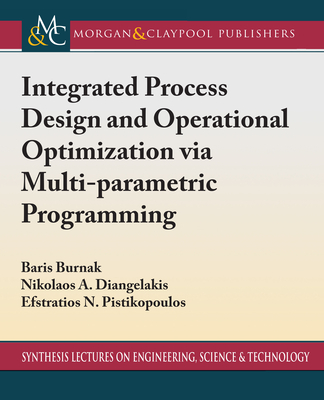Feasibility and Infeasibility in Optimization: Algorithms and Computational Methods (International Series in Operations Research & Management Science)
暫譯: 優化中的可行性與不可行性:演算法與計算方法(國際運籌學與管理科學系列)
John W. Chinneck
- 出版商: Springer
- 出版日期: 2007-12-06
- 售價: $4,610
- 貴賓價: 9.8 折 $4,517
- 語言: 英文
- 頁數: 274
- 裝訂: Hardcover
- ISBN: 0387749314
- ISBN-13: 9780387749310
-
相關分類:
Algorithms-data-structures
海外代購書籍(需單獨結帳)
相關主題
商品描述
Description
Constrained optimization models are core tools in business, science, government, and the military with applications including airline scheduling, control of petroleum refining operations, investment decisions, and many others. Constrained optimization models have grown immensely in scale and complexity in recent years as inexpensive computing power has become widely available. Models now frequently have many complicated interacting constraints, giving rise to a host of issues related to feasibility and infeasibility. For example, it is sometimes difficult to find any feasible point at all for a large model, or even to accurately determine if one exists, e.g. for nonlinear models. If the model is feasible, how quickly can a solution be found? If the model is infeasible, how can the cause be isolated and diagnosed? Can a repair to restore feasibility be carried out automatically? Researchers have developed numerous algorithms and computational methods in recent years to address such issues, with a number of surprising spin-off applications in fields such as artificial intelligence and computational biology. Over the same time period, related approaches and techniques relating to feasibility and infeasibility of constrained problems have arisen in the constraint programming community.
Feasibility and Infeasibility in Optimization is a timely expository book that summarizes the state of the art in both classical and recent algorithms related to feasibility and infeasibility in optimization, with a focus on practical methods. All model forms are covered, including linear, nonlinear, and mixed-integer programs. Connections to related work in constraint programming are shown. Part I of the book addresses algorithms for seeking feasibility quickly, including new methods for the difficult cases of nonlinear and mixed-integer programs. Part II provides algorithms for analyzing infeasibility by isolating minimal infeasible (or maximum feasible) subsets of constraints, or by finding the best repair for the infeasibility. Infeasibility analysis algorithms have arisen primarily over the last two decades, and the book covers these in depth and detail. Part III describes applications in numerous areas outside of direct infeasibility analysis such as finding decision trees for data classification, analyzing protein folding, radiation treatment planning, automated test assembly, etc.
A main goal of the book is to impart an understanding of the methods so that practitioners can make immediate use of existing algorithms and software, and so that researchers can extend the state of the art and find new applications. The book is of interest to researchers, students, and practitioners across the applied sciences who are working on optimization problems.
商品描述(中文翻譯)
**描述**
受限優化模型是商業、科學、政府和軍事中的核心工具,應用範圍包括航空公司排班、石油精煉操作控制、投資決策等許多其他領域。隨著廉價計算能力的廣泛可用,受限優化模型在最近幾年中規模和複雜性大幅增長。這些模型現在經常具有許多複雜的相互作用約束,導致與可行性和不可行性相關的一系列問題。例如,對於大型模型,有時很難找到任何可行點,甚至無法準確確定是否存在可行點,例如對於非線性模型。如果模型是可行的,能多快找到解決方案?如果模型是不可行的,如何隔離和診斷原因?是否可以自動執行修復以恢復可行性?研究人員在最近幾年中開發了許多算法和計算方法來解決這些問題,並在人工智慧和計算生物學等領域產生了一些驚人的衍生應用。在同一時期,與受限問題的可行性和不可行性相關的技術和方法在約束編程社群中也相繼出現。
**優化中的可行性與不可行性** 是一本及時的解說書,總結了與優化中的可行性和不可行性相關的經典和最新算法的最新進展,重點在於實用方法。所有模型形式均有涵蓋,包括線性、非線性和混合整數程序。書中展示了與約束編程相關工作的聯繫。該書的第一部分針對快速尋找可行性的算法,包括針對非線性和混合整數程序的困難情況的新方法。第二部分提供了通過隔離最小不可行(或最大可行)約束子集或尋找最佳修復來分析不可行性的算法。不可行性分析算法主要在過去二十年中出現,書中對這些算法進行了深入詳細的探討。第三部分描述了在直接不可行性分析之外的多個領域的應用,例如尋找數據分類的決策樹、分析蛋白質摺疊、放射治療計劃、自動化測試組裝等。
本書的主要目標是傳授方法的理解,以便從業者能夠立即使用現有的算法和軟體,並使研究人員能夠擴展最新技術並找到新的應用。本書對於從事優化問題的研究人員、學生和應用科學領域的從業者都具有興趣。































